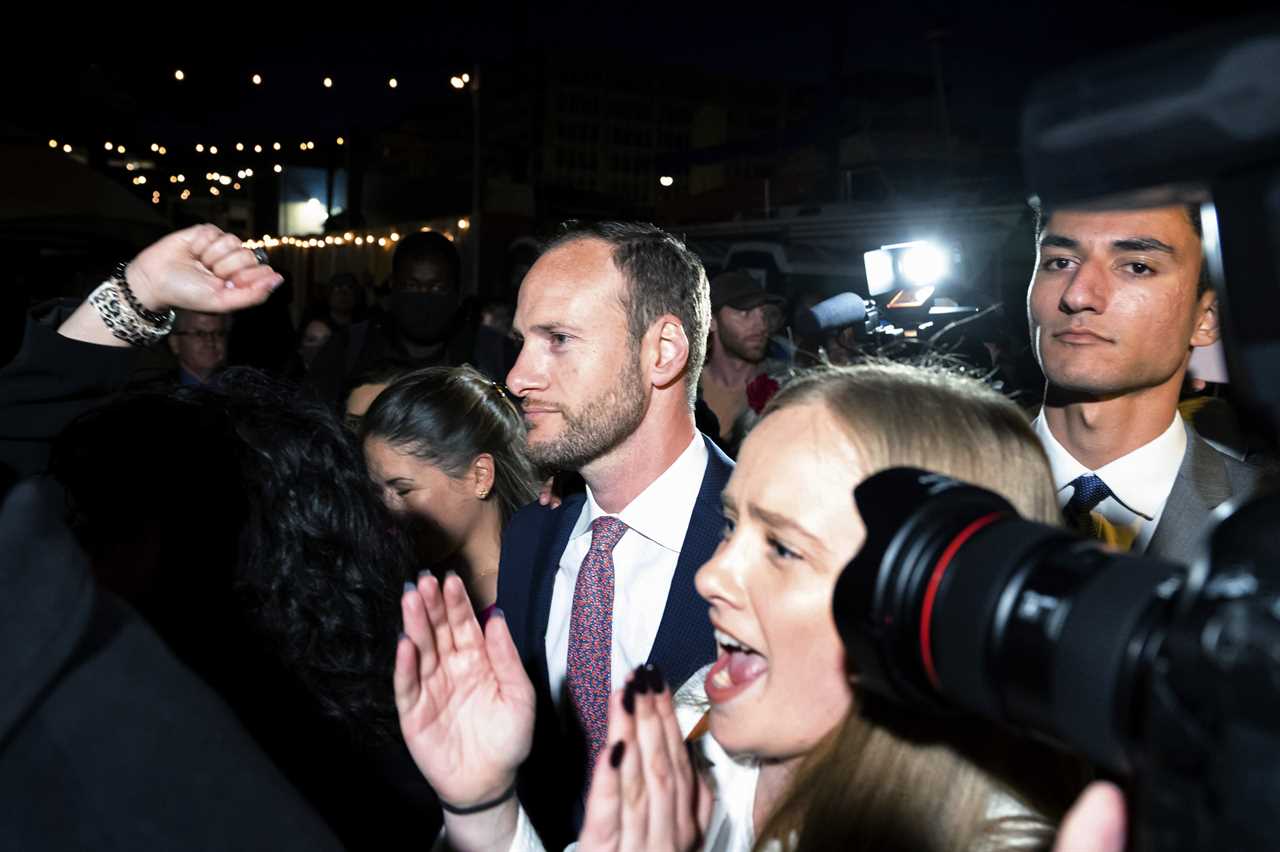
Chesa Boudin was San Francisco’s top prosecutor for less than three years. In that short time he became a potent symbol of a movement to rethink crime and punishment’s promise — and its perils.
The public defender and son of leftist radicals who spent years in prison for their roles in a deadly armed robbery was elected district attorney on a platform of cutting incarceration and cracking down on rogue cops. It didn’t last long. He was ousted in a 2022 recall election fomented by a potent blend of crime fears fanned by increases in homicides and property crimes, Covid-era frustration and Boudin’s practice of diverting offenders.
Yet the larger progressive approach to criminal justice Boudin embodied endures, pursued by district attorneys around the country. At the same time, public safety has become a politically volatile issue that Republicans eagerly and often effectively use as a bludgeon. Some wary Democrats in blue states like New York and California have begun to retreat by reversing changes to bail and the discovery process and mulling tougher property crime penalties, marking yet another turn in a decadeslong push and pull.
POLITICO’s Jeremy B. White sat down with Boudin in Berkeley, where he leads a new University of California criminal justice center, to talk about lessons from his downfall and the broader outlook for the causes he championed.
This conversation has been edited for length and clarity.
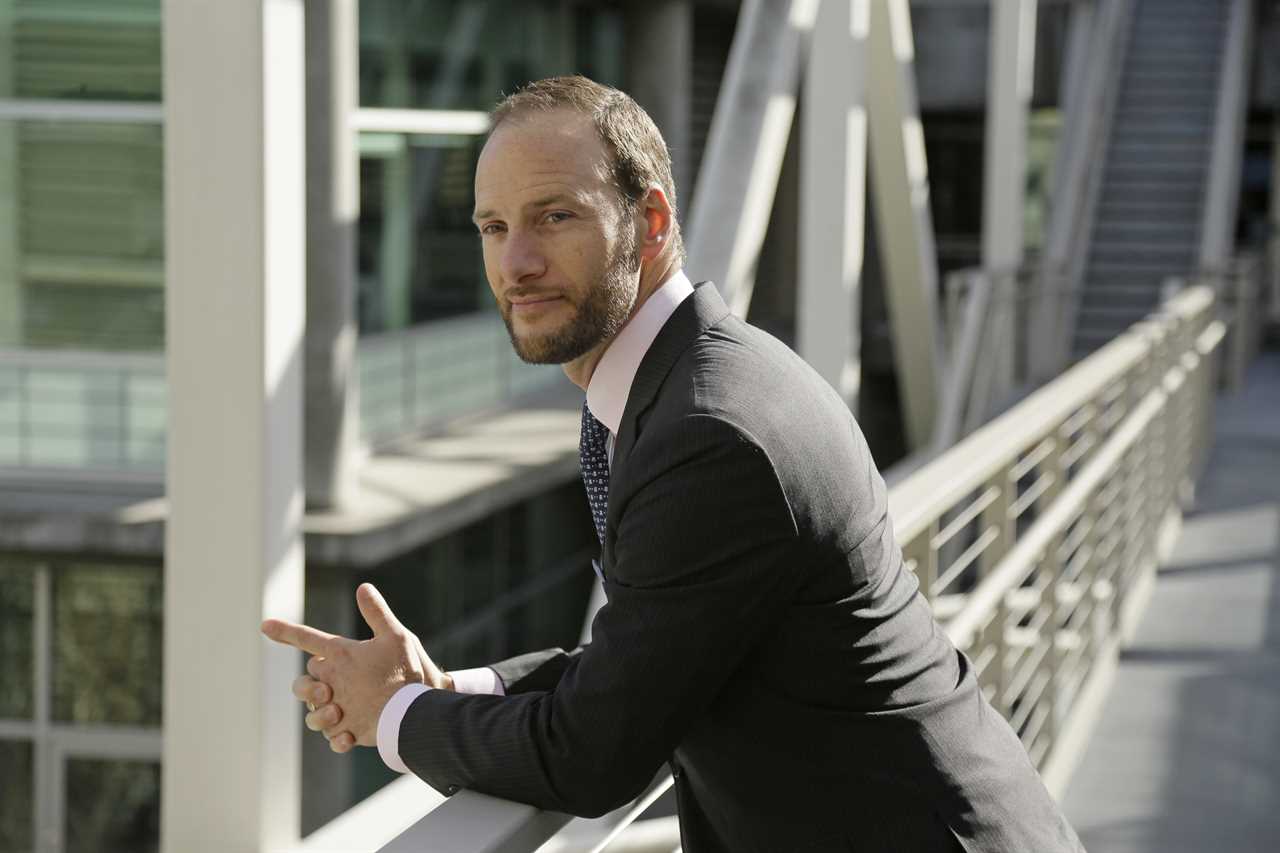
Since leaving office, you've reached the conclusion that electing progressive prosecutors was not enough. What else needs to happen to advance the goals you are seeking? Do you see your work in Berkeley as being part of that?
To be clear, I don't think it's limited to prosecutors. I think, in any area of public policy, winning elections is not enough. I think we absolutely need to do the kind of long-term institution and infrastructure building to support policies, whether in criminal justice or beyond, that we've seen the far right in this country do very effectively.
It's how and why for example, they were able, in a multi-decade campaign, to overturn women's rights to control their reproductive freedom. It’s how and why we all anticipate we're about to watch the U.S. Supreme Court overturn four decades’ worth of delegation and deference to administrative interpretation of statutes, in a case known as Chevron, which we expect is gonna be overturned in the weeks ahead.
The right wing has been extremely effective at doing long-term investment in infrastructure building, and I think it's something that folks who are committed, frankly, to democracy and to progress need to do a better job of. It's true in the criminal justice space and really across the spectrum. And absolutely the work that I'm doing here, while nonpartisan, is designed to be part of elevating the integrity and nuance in the conversation we're having in the public square about public safety.
Are you envisioning something like a Federalist Society","link":{"target":"NEW","attributes":[],"url":"https://www.politico.com/news/federalist-society","_id":"0000018d-3b3d-d06d-ab9f-bbbfdb2a0001","_type":"33ac701a-72c1-316a-a3a5-13918cf384df"},"_id":"0000018d-3b3d-d06d-ab9f-bbbfdb2a0002","_type":"02ec1f82-5e56-3b8c-af6e-6fc7c8772266"}">Federalist Society for the left?
Certainly not in the work that I'm doing here at Berkeley Law School. Do I think that the left needs more institutions that can have the kind of effect and impact that the Federalist Society has had if it wants to compete politically? Sure, I do think so.
To the extent though, to your point, that conservatives had a decades-long project of creating this sort of legal, intellectual scaffolding for some of the decisions we're now seeing out of the Supreme Court. Do you see the need for a similar type of long-term project to create legal space on a different part of the spectrum? And if so, why hasn’t that happened?
Yes, I think there's a few reasons why it hasn't happened.
One is probably just a resource imbalance. The right wing traditionally represents business and corporate interests, the interests of billionaires, and they have more money. So it's easier to invest in and build the kind of organizations and projects that will do the long-term work. It's hard to do long-term work if you have short-term funding.
That's one reason. The other reason is I think, probably, at least in this current moment, the far right has been extremely capable and willing to put aside their differences. So, for example, notwithstanding the current dysfunction in the Republican Congress, Donald Trump was elected with a pretty diverse coalition that included evangelicals who managed to look the other way at his philandering and womanizing and dishonesty and lack of family values in order to get someone elected who would help them overturn Roe v. Wade. All too often, sectarian disagreements on the left prevent that kind of unity and coalition-building.
I constantly hear or refrain from voters of essentially, when you say ‘look at these crime statistics, they're below where they were last year, they're well below where they were a decade ago’ — essentially, don't trust the data. Police aren't making arrests. What's really going on isn't making it into the data. How do you respond to that? How do you tell people you can trust the data when crime data is so dependent on a lot of different inputs?
First of all: it’s absolutely true that crime data and criminal justice data is far from perfect. I mean, it absolutely goes without saying that we all want and deserve better data, more transparency from government agencies.
But the problem is when people start using Trump tactics to say: “I don't care what the facts are, what matters is how I feel. And if I say the sky is green, then the sky is green, and you can't tell me otherwise.”
And I think that's the dangerous territory that we've really entered into when it comes to public safety data. It's imperfect, and yet it's the same imperfect data that we've relied on for years.
And if we throw that out simply because there are imperfections in the data, then you have to question what we're using to justify policies and policymaking. You have to question: Are we simply going with the gut? Are we rejecting the entire endeavor of higher education and empirical research in favor of viral Twitter videos that make us feel more or less safe? That's a very dangerous place to be in for a democracy that's committed to the rule of law.
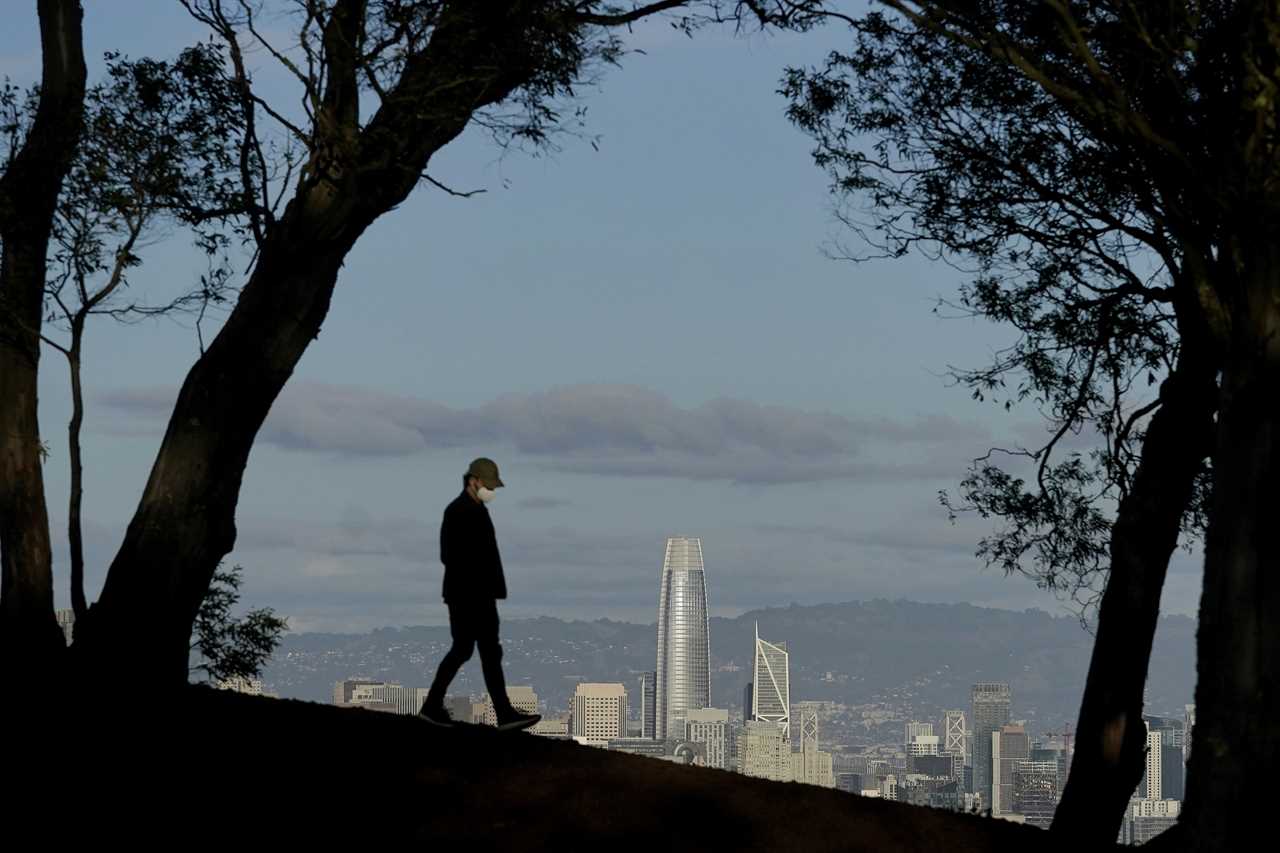
Your recall attracted an enormous amount of press attention nationally, even internationally. All things considered San Francisco is not that big of a city. Why the outsize attention? Was it just because: ‘even progressive San Francisco thinks it's gone too far?’ How do you explain the sort of frenzy?
San Francisco is not nearly as progressive as its reputation, and my recall was only one small piece of evidence in support of that claim. Look at the recall of the school board. Look at the fact that the city has never had a progressive mayor other than perhaps Art Agnos.
Look at the fact that the city is home to more billionaires per capita than probably any other jurisdiction in the world. Look at the fact that the city's made a hard turn to the right in the last couple of years. Look at the fact that the politicians that have come out of San Francisco on the national stage are anything but progressive: they’re mainstream centrist Democrats, Kamala Harris, Nancy Pelosi, Dianne Feinstein, etc.
But I think the answer to your question really has less to do with the particular politics of San Francisco and more to do with the fact that San Francisco is a launching pad for state and national politicians — it has been historically — and that San Francisco gets outsized political tension about all issues, not just politics.
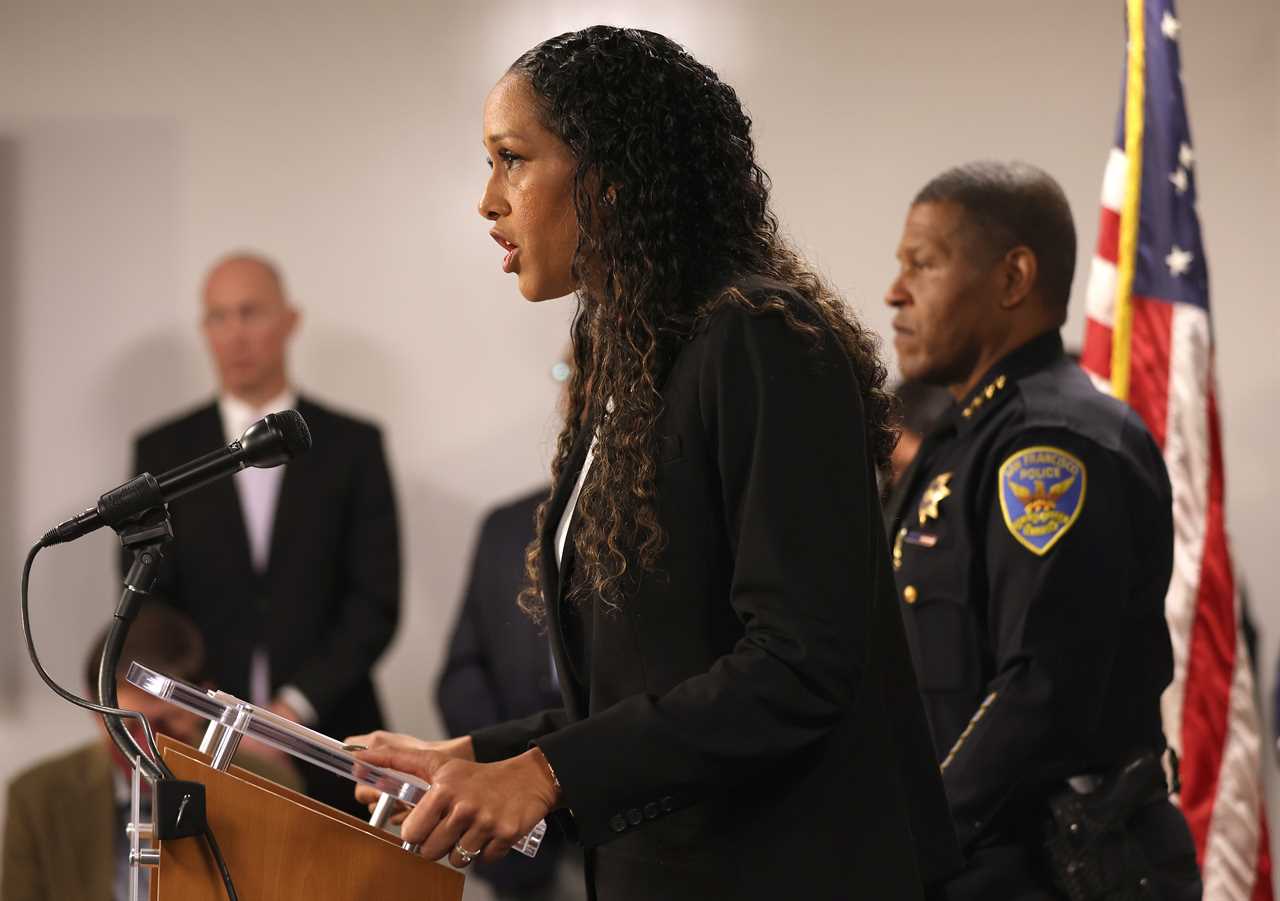
So you've been replaced by a much more sort of conventional law-and-order prosecutor in Brooke Jenkins","link":{"target":"NEW","attributes":[],"url":"https://www.politico.com/news/2022/07/07/london-breed-replaces-chesa-boudin-with-brooke-jenkins-00044563","_id":"0000018d-3b3d-d06d-ab9f-bbbfdb2b0000","_type":"33ac701a-72c1-316a-a3a5-13918cf384df"},"_id":"0000018d-3b3d-d06d-ab9f-bbbfdb2b0001","_type":"02ec1f82-5e56-3b8c-af6e-6fc7c8772266"}">conventional law-and-order prosecutor in Brooke Jenkins, who easily won the remainder of your term and is essentially running unopposed for a full term now.
In that context, and given what you've said about how you sort of were out of step with the more centrist democratic tradition in San Francisco, are we likely to see the city elect another progressive prosecutor like you anytime soon, or was your election an anomaly owing to a confluence of factors that we're not going to see again anytime soon?
You know, if I could predict the future, I'd be a very rich man. I don't know. I think the fact that we saw political winds in San Francisco and frankly, across the country, make as quick and dramatic a turn as we saw from 2020 to 2021 is a good reminder that it is very difficult to predict the future.
You know, when a politician feels safe — I mean, look at Governor Cuomo in New York state. I mean, there was a moment in 2020 when he was a front runner as a future Democratic presidential nominee. He was doing nationally televised Covid briefings. He was a hero across the country.
Talking about the national political picture — I think another reason that your political arc drew so much attention is the way it was seen as sort of a harbinger reflection of larger political trends.
You've spoken since about the intense national backlash","link":{"target":"NEW","attributes":[],"url":"https://www.politico.com/news/2022/04/13/dems-crime-law-and-order-politics-00024875","_id":"0000018d-3b3d-d06d-ab9f-bbbfdb2b0004","_type":"33ac701a-72c1-316a-a3a5-13918cf384df"},"_id":"0000018d-3b3d-d06d-ab9f-bbbfdb2b0005","_type":"02ec1f82-5e56-3b8c-af6e-6fc7c8772266"}">national backlash we've seen to progressive prosecutors, people who want to move away from mass incarceration. To the extent there is an intense national backlash, what's driving it? Is it that progressives tried to move too fast on things like eliminating cash bail","link":{"target":"NEW","attributes":[],"url":"https://www.politico.com/magazine/story/2018/08/29/california-abolish-cash-bail-reformers-unhappy-219618/","_id":"0000018d-3b3d-d06d-ab9f-bbbfdb2b0006","_type":"33ac701a-72c1-316a-a3a5-13918cf384df"},"_id":"0000018d-3b3d-d06d-ab9f-bbbfdb2b0007","_type":"02ec1f82-5e56-3b8c-af6e-6fc7c8772266"}">eliminating cash bail and lesser sentences?
Definitely not that. I don't think there is really a backlash in the traditional sense because you don't see voters rejecting the progressive policies or candidates that they've endorsed except in very, very, very few cases. You can count on one hand the number of so-called progressive prosecutors who have been elected who have then been voted out in favor of someone else.
The reality is the attacks on so-called progressive prosecutors are coming overwhelmingly from places where there's more concentrated power rather than from voters.
So for example, you see the Republican-controlled House of Representatives in the Pennsylvania state Legislature trying to impeach (Philadelphia District Attorney) Larry Krasner. You see (Florida Gov.) Ron DeSantis attacking and removing two elected prosecutors. You see the state Legislature in Illinois attempting unsuccessfully to create a provision to allow for the recall of State's Attorney Kim Foxx, but no other elected officials in the state.
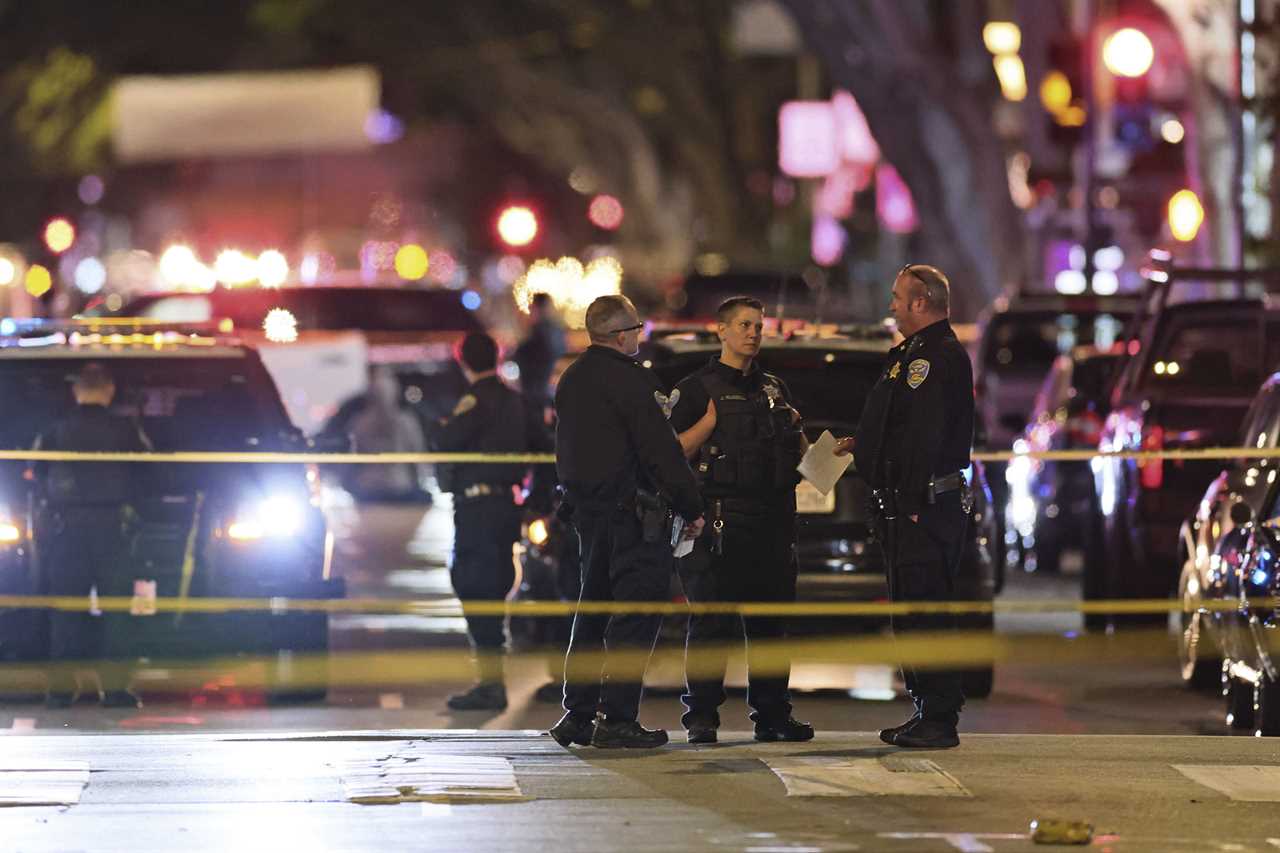
There's been a lot of effort by that movement in recent years to focus voters' attention on prosecutor races making the point that in terms of criminal justice, this is where a lot of the most important decisions and outcomes come from given some of what you've spoken about Gov. DeSantis removing people from office.
Do you think the role of elected prosecutors has become overly politicized? Has it become a proxy for larger things in a way that's potentially damaging?
Perhaps, but it's certainly not just the reform movement that's done that. I think it was the Virginia attorney general a couple of years ago, a Republican, who said that the best way to push back on reform prosecutors was to quote unquote, make them famous, to make sure that their names were associated with every crime that occurred in their jurisdiction, and that has, in fact, been an effective way to undermine and weaken prosecutors who are interested in finding alternative, data-driven ways to improve public safety rather than simply doing business as usual.
So I think there has been increasing awareness of the role of prosecutors. A politicization, if you will, of the role, which can be helpful or harmful, but it's not something that happens linearly or with equal application. The level of attention that the press paid to crime in San Francisco when I was D.A. is exponentially higher than the level of attention that's paid now, that Jenkins is the D.A.
I don't know how to explain that. But crime is up under her, it was down under me. And you wouldn't know that if you were following local or national news about San Francisco.
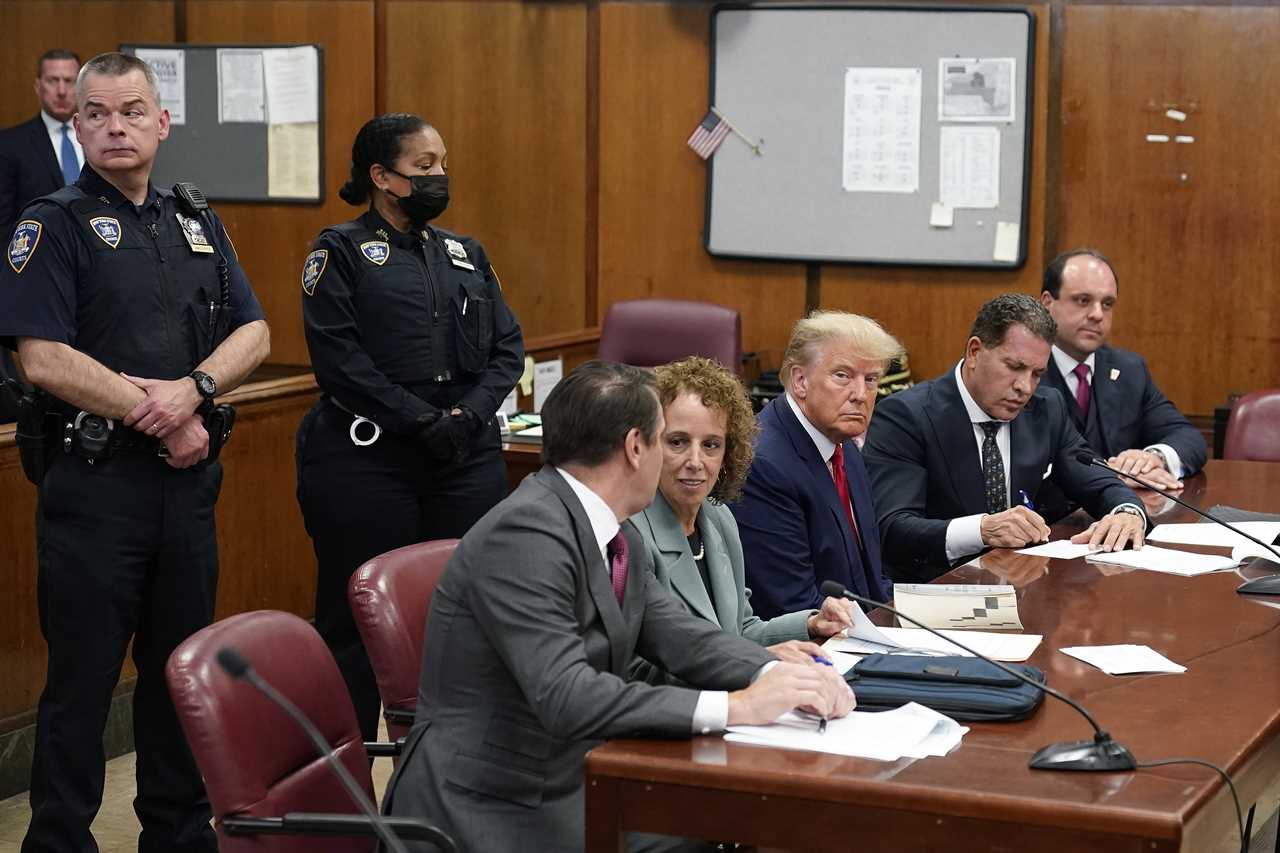
Along similar lines, thinking about politicization with the various prosecutions of former President Trump including from fairly progressive people like Alvin Bragg","link":{"target":"NEW","attributes":[],"url":"https://www.politico.com/news/2023/04/05/alvin-bragg-case-against-trump-00090602","_id":"0000018d-3b3d-d06d-ab9f-bbbfdb2d0000","_type":"33ac701a-72c1-316a-a3a5-13918cf384df"},"_id":"0000018d-3b3d-d06d-ab9f-bbbfdb2d0001","_type":"02ec1f82-5e56-3b8c-af6e-6fc7c8772266"}">Alvin Bragg — is there a risk there that those prosecutions, if they're seen as overly politically driven, and particularly if they failed to secure convictions that that'll discredit not just the prosecutors doing them, but this idea of impartial arbiters of the law?
You know, anytime you prosecute someone who's been in political office, there's a risk and certainly the supporters of the defendant in that case, will call it a political prosecution. Now, certainly that's been Trump's primary strategy not just in criminal cases, but in civil cases.
Is that a risk? Sure. But the alternative is to look the other way and say that anybody involved in politics is above the law. I don't think that's an acceptable alternative in a country that prides itself on the rule of law. So what to do? If you're a prosecutor in a jurisdiction where Trump has committed crimes that you think you can prove, ethically, don't you have an obligation to try and prove that?
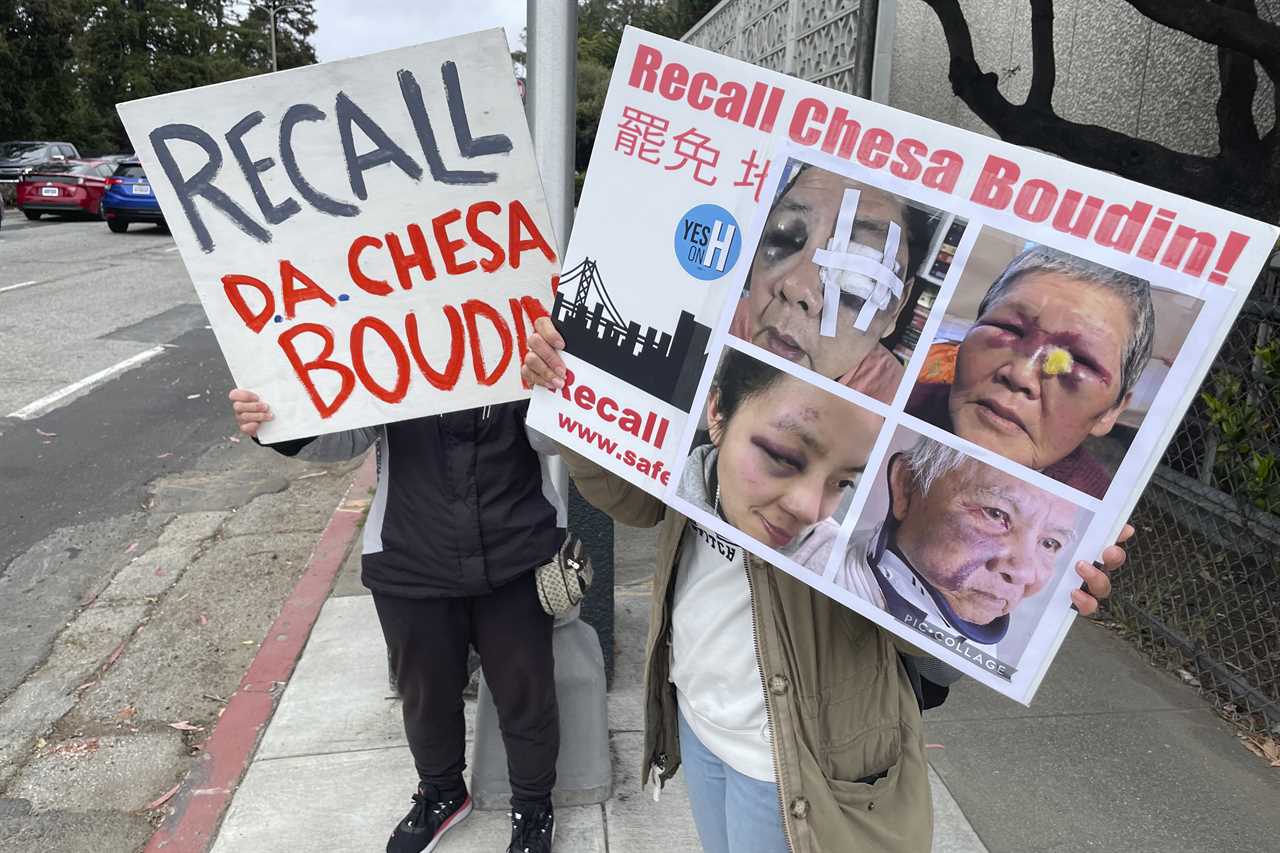
You are one of a few progressive prosecutors who have won office in California in recent years who have also seen a lot of backlash. The district attorney representing the county where we're currently sitting, Pamela Price, looks very likely to face a recall election","link":{"target":"NEW","attributes":[],"url":"https://www.politico.com/news/2023/08/15/california-keeps-electing-progressive-das-then-pushing-to-recall-them-00111181#:~:text=Pamela%20Price%20is%20latest%20progressive,to%20face%20a%20recall%20push.&text=OAKLAND%2C%20Calif.,for%20a%20mounting%20recall%20fight.","_id":"0000018d-3b3d-d06d-ab9f-bbbfdb2d0003","_type":"33ac701a-72c1-316a-a3a5-13918cf384df"},"_id":"0000018d-3b3d-d06d-ab9f-bbbfdb2d0004","_type":"02ec1f82-5e56-3b8c-af6e-6fc7c8772266"}">looks very likely to face a recall election. In LA, George Gascón dodged a recall","link":{"target":"NEW","attributes":[],"url":"https://www.politico.com/news/2022/08/15/george-gascon-los-angeles-ballot-00051978","_id":"0000018d-3b3d-d06d-ab9f-bbbfdb2d0005","_type":"33ac701a-72c1-316a-a3a5-13918cf384df"},"_id":"0000018d-3b3d-d06d-ab9f-bbbfdb2d0006","_type":"02ec1f82-5e56-3b8c-af6e-6fc7c8772266"}">dodged a recall but is up for reelection, and it looks like it's going to be a very tough one","link":{"target":"NEW","attributes":[],"url":"https://www.latimes.com/california/story/2023-10-22/los-angeles-district-attorney-2024-election-candidates-george-gascon","_id":"0000018d-3b3d-d06d-ab9f-bbbfdb2d0007","_type":"33ac701a-72c1-316a-a3a5-13918cf384df"},"_id":"0000018d-3b3d-d06d-ab9f-bbbfdb2d0008","_type":"02ec1f82-5e56-3b8c-af6e-6fc7c8772266"}">a very tough one.
What do you attribute those headwinds to? Is that inevitably, if you try to change the system, you're going to face a backlash? Is it about particular decisions that those elected officials make?
Well, like I said earlier, I don't think it's a backlash in the traditional sense. It's not primarily coming from voters. It's primarily coming from other areas of government and from very, very wealthy, narrow financial interests.
In San Francisco, for example, I won 3% more votes and about 15,000 more individual votes in the recall than I did to get elected. That's not part of the national narrative. It's not a convenient part of the story that people like to tell about what happened in San Francisco, but the reality is, the pro-recall forces spent $10 million and they created a dynamic where I was running against myself, not against any other candidate, any other ideas, any other platforms. And despite that, we got more votes and a higher percentage of the votes.
I think by and large, Democratic elected officials in California are not interested in returning to the 90s: over incarceration","link":{"target":"NEW","attributes":[],"url":"https://www.npr.org/2011/05/23/136579580/california-is-ordered-to-cut-its-prison-population","_id":"0000018d-3b3d-d06d-ab9f-bbbfdb2d000d","_type":"33ac701a-72c1-316a-a3a5-13918cf384df"},"_id":"0000018d-3b3d-d06d-ab9f-bbbfdb2d000e","_type":"02ec1f82-5e56-3b8c-af6e-6fc7c8772266"}">over incarceration, Three Strikes","link":{"target":"NEW","attributes":[],"url":"https://lao.ca.gov/analysis_1995/3strikes.html","_id":"0000018d-3b3d-d06d-ab9f-bbbfdb2d000f","_type":"33ac701a-72c1-316a-a3a5-13918cf384df"},"_id":"0000018d-3b3d-d06d-ab9f-bbbfdb2d0010","_type":"02ec1f82-5e56-3b8c-af6e-6fc7c8772266"}">Three Strikes, that type of thing.
At the same time, they hear that their voters are concerned about crime. Politically, they're worried about what that means, as you see elected officials who are helping to write California's criminal code weighing these decisions, are you concerned that there's going to be a political overcorrection driven by fear that their constituents will take them out of office?
That’s certainly a risk in some jurisdictions, absolutely. You know, the frustrating thing about it is that there's a real disconnect between public sentiment and what the data shows us on at least two different levels.
Crime data is really really good right now from a historical standpoint. Obviously, if you're a victim of crime yourself, or a family or friend of yours is a victim of crime, the data doesn't matter much. But overall, if you look at the data, and you look at the trend lines, most categories of crime are at or near historic lows, right. And yet, we know that people across the country feel less safe.
That's a problem for politicians. But it's also a problem for making good policy because it means that we as a state, we as a country, may be pushed to implement policies that are entirely disconnected from what the evidence in the data show us. And that's a recipe for really bad outcomes.
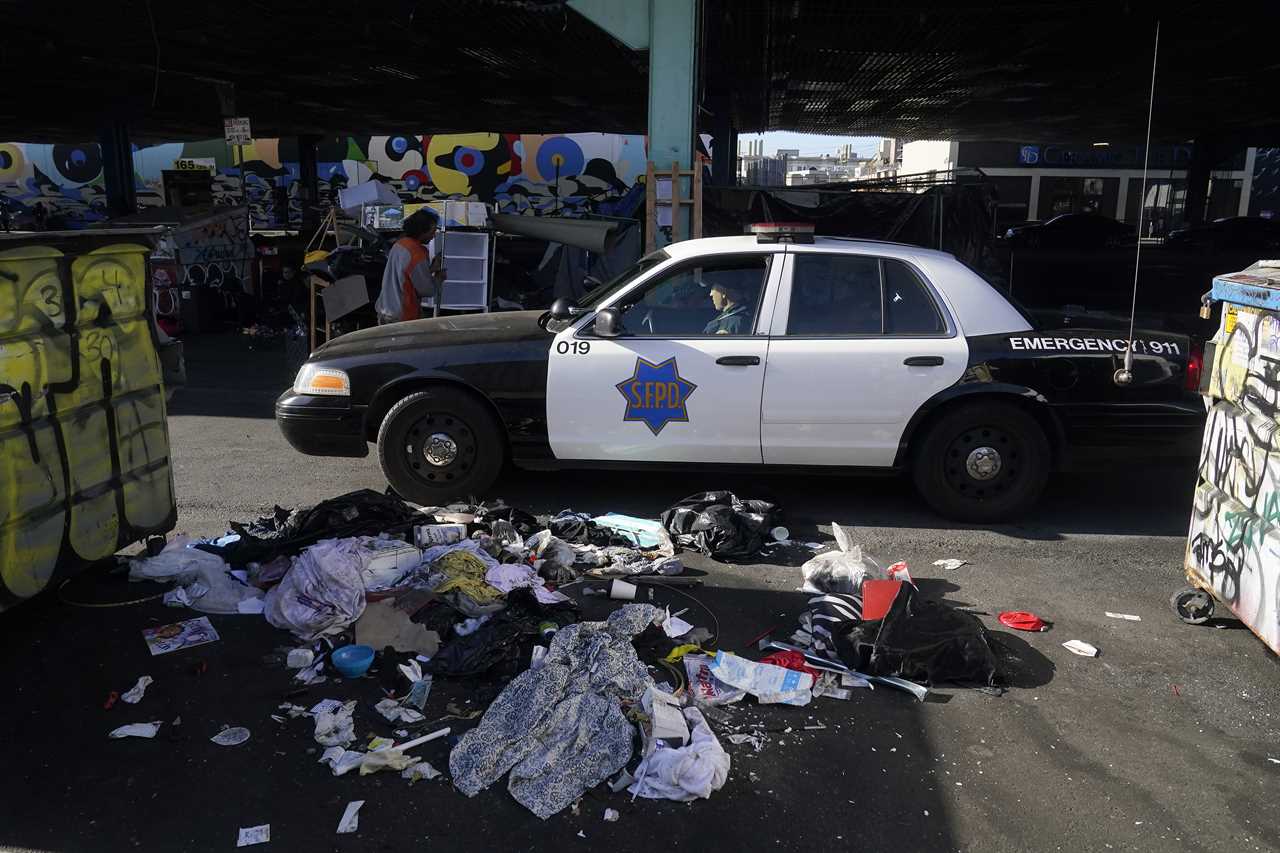
You talked also repeatedly about how prosecutors don't control crime trends, that they're sort of downstream of that. What do prosecutors control in the criminal justice system? Should they be responding to crime trends? Should they be somehow anticipating what's going to happen?
Prosecutors make decisions that can be tremendously impactful and have a unique role in the center of the criminal justice system. They can, at best, coordinate efforts amongst other agencies, when those agencies are willing and able to cooperate with each other and with the DA’s office.
Prosecutors cannot and it is not their role to respond to 911 calls or to determine how police allocate resources, staffing, response priorities. Ultimately, prosecutors run public law offices, and it's their job to decide which categories of cases to prioritize with limited resources and how to go about presenting evidence to the courts and for juries.
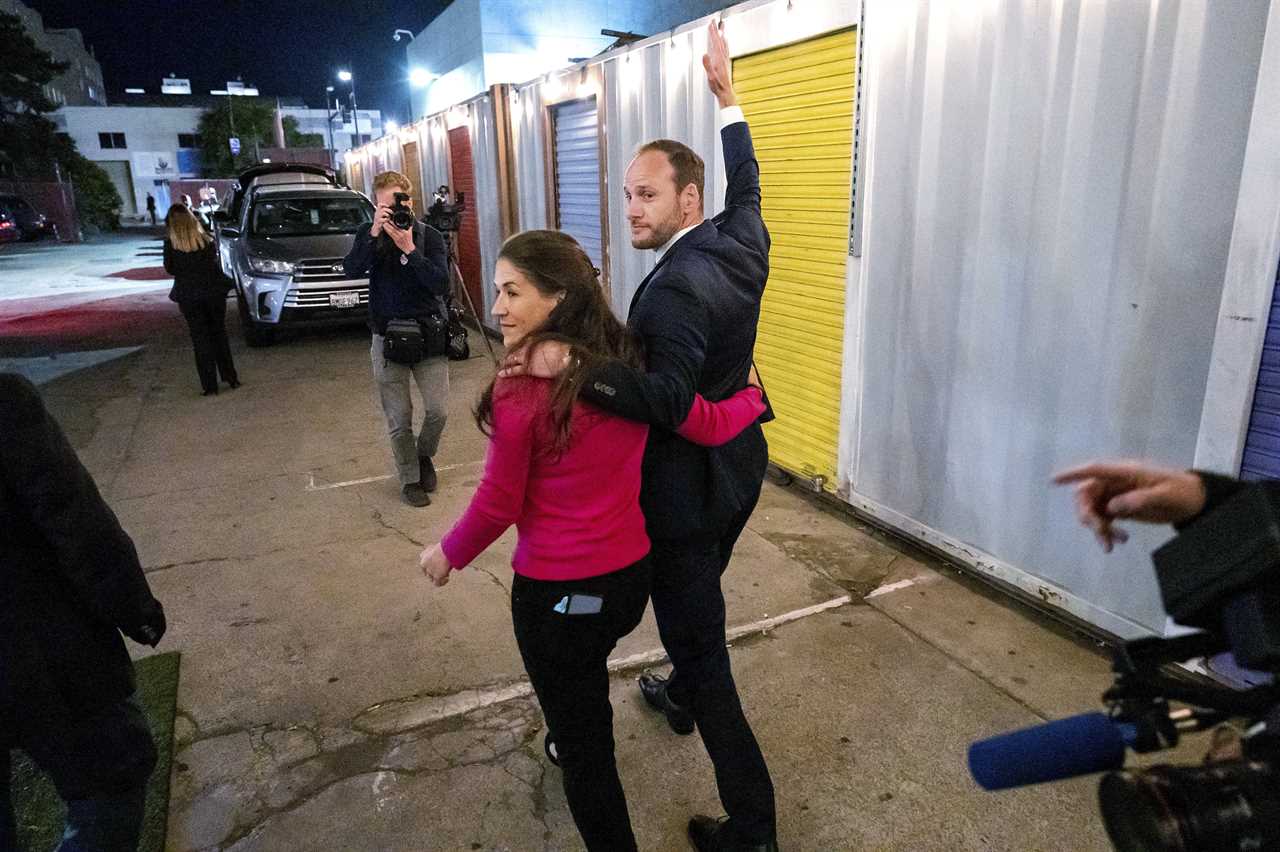
We talked a bit about property crimes. There's also enormous attention on drug crimes, particularly in San Francisco — concerns about public drug use. We've seen the mayor overseeing mass arrests","link":{"target":"NEW","attributes":[],"url":"https://www.sfchronicle.com/sf/article/sf-drug-crackdown-dealers-18561747.php","_id":"0000018d-3b3d-d06d-ab9f-bbbfdb2e0000","_type":"33ac701a-72c1-316a-a3a5-13918cf384df"},"_id":"0000018d-3b3d-d06d-ab9f-bbbfdb2e0001","_type":"02ec1f82-5e56-3b8c-af6e-6fc7c8772266"}">overseeing mass arrests of public drug users and pushing a ballot initiative to drug test welfare recipients","link":{"target":"NEW","attributes":[],"url":"https://www.politico.com/news/2023/09/26/san-francisco-mayor-drug-testing-00118274#:~:text=SAN%20FRANCISCO%20%E2%80%94%20Recipients%20of%20public,address%20San%20Francisco's%20fentanyl%20epidemic.","_id":"0000018d-3b3d-d06d-ab9f-bbbfdb2e0002","_type":"33ac701a-72c1-316a-a3a5-13918cf384df"},"_id":"0000018d-3b3d-d06d-ab9f-bbbfdb2e0003","_type":"02ec1f82-5e56-3b8c-af6e-6fc7c8772266"}">drug test welfare recipients. We've seen various proposals to make it easier to charge fentanyl dealers with homicide","link":{"target":"NEW","attributes":[],"url":"https://www.politico.com/newsletters/california-playbook/2023/09/06/unfinished-business-on-fentanyl-00114173#:~:text=Republicans%20in%20the%20Assembly%20made,championed%20by%20Democratic%20state%20Sen.","_id":"0000018d-3b3d-d06d-ab9f-bbbfdb2e0004","_type":"33ac701a-72c1-316a-a3a5-13918cf384df"},"_id":"0000018d-3b3d-d06d-ab9f-bbbfdb2e0005","_type":"02ec1f82-5e56-3b8c-af6e-6fc7c8772266"}">charge fentanyl dealers with homicide.
How big do you see the risk being of again, the pendulum swinging too far and people cracking down on drug use and drug sellers in a way that doesn't achieve the best results?
It should be crystal clear that that risk has already been realized in San Francisco. They have clearly relaunched a War on Drugs. The supporters and defenders of the War on Drugs that (D.A. Brooke) Jenkins and (Mayor London) Breed and launched say: “but fentanyl is different,” which is frankly the same thing they said about crack and heroin and meth and marijuana in its day, when wars on drugs were being launched against those narcotics.
The evidence is overwhelming that this is not working, that this is a failure, that the pendulum has swung too far. In 2023, San Francisco experienced a record high (in) fatal overdoses — in the context of the mayor and the DA’s attempt to crack down quote unquote on drugs. The War on Drugs has succeeded in killing more people than were being killed previously.
They have undermined treatment efforts, they have closed a safe consumption site, they have made it more difficult for people with addiction to get access to life-saving treatment, they have disrupted the access to drugs for people who are dependent on them in ways that don't actually make it more difficult to get drugs, but do make it more likely that the drugs will cause fatal overdoses.
All things that researchers, academics, policy experts, predicted and were shouting from the rooftops and the Twitterverse would happen with these policies that they implemented. It is ironic and tragic that the people who justified my recall in the name of victims of fatal overdoses are themselves responsible for more fatal overdoses in a year than had ever been imaginable in San Francisco until 2023.
----------------------------------------
By: Jeremy B. White
Title: Former San Francisco DA Chesa Boudin on the city’s ‘hard turn to the right’
Sourced From: www.politico.com/news/2024/01/24/chesa-boudin-san-francisco-interview-00137358
Published Date: Wed, 24 Jan 2024 05:00:00 EST
Did you miss our previous article...
https://consumernewsnetwork.com/politics-us/us-strikes-iranbacked-groups-on-iraq






